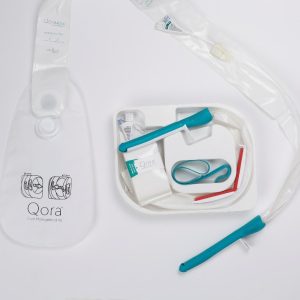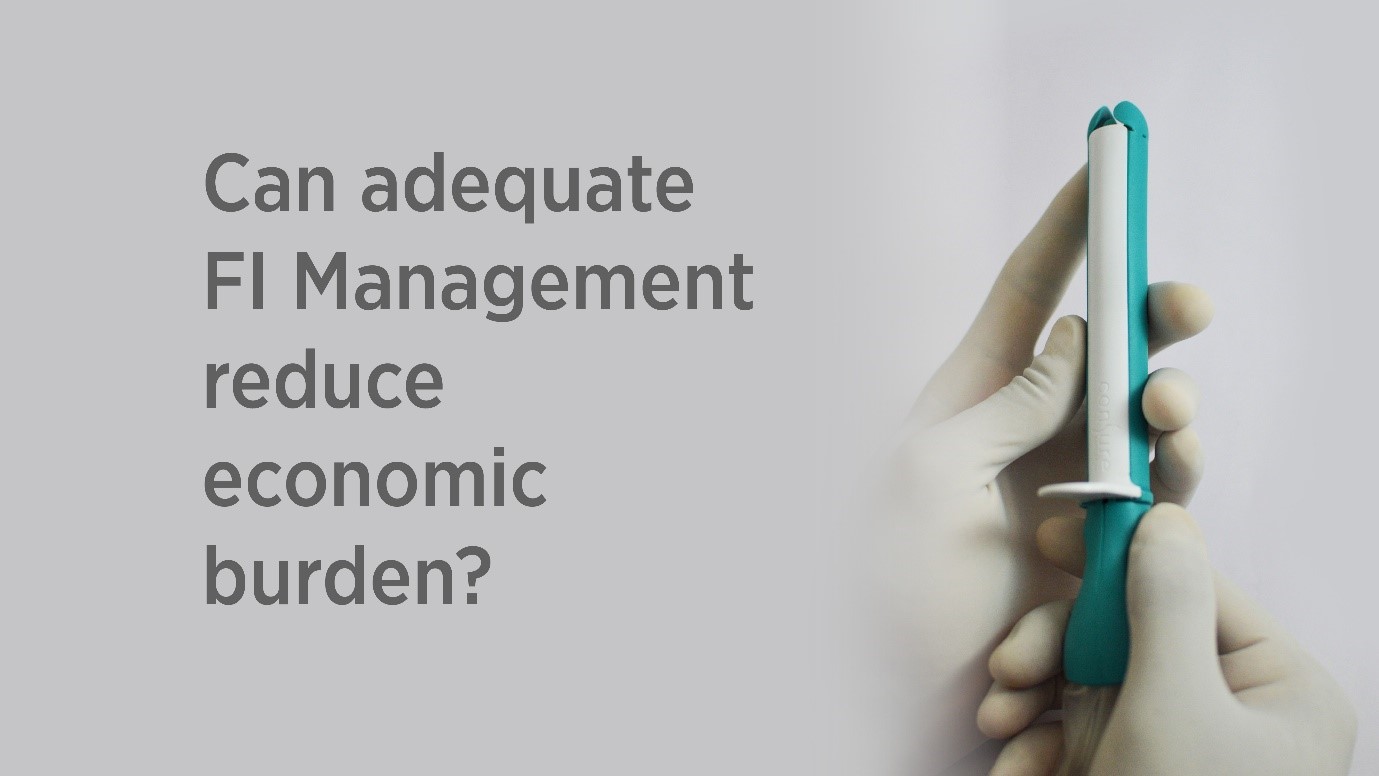Fecal incontinence not only leads to reduction in quality of life, hospital acquired complications, creates a nursing burden in critical care settings – it also adds to additional cost.
Fecal incontinence is very common, affecting 9 to 40 percent of all ICU patients. This indicates that a significant proportion of ICU patients require adequate fecal management system. FI management is a time consuming and a laborious task for healthcare providers and can often distract them from other important aspects of patient care. Studies suggest that FI management can take up to 174 mins each day. This can contribute towards fatigue, burnout and even back injuries due to frequent turning of patients.
FI management is not only taxing for the healthcare providers but also adds a significant corpus towards healthcare costs. This cost can be categorized as direct and indirect cost. Direct cost includes material and workforce cost. Managing FI with traditional methods such as absorbent pads could approximately $150 per patient per day. Gloves, sheets, absorbent pads, patient cleansing and hygiene products are common consumables required.
Inadequate stool kit also leads to several complications that impact clinical outcomes. These Hospital Acquired Complications add additional cost, increase length of stay, and even affect patient mortality rates. This component is considered as indirect cost in the corpus for inadequate FI Management.
Fecal incontinence increases the risk of perineal skin breakdown, incontinence associated dermatitis and cross-contamination with nosocomial infections, including Clostridioides difficile (formerly known as Clostridium difficile and also known as colitis c diff or C. difficile). Colitis c diff has become one of the most common hospital-acquired infections (HAIs) in the United States, now affecting more than 500,000 people annually.
Fecal incontinence can also complicate hospital-acquired pressure injury (HAPI). Recent research suggests incontinence as a risk factor in the development of an HAPI. In that study, nearly three-fourths of participants with HAPI had fecal incontinence, urinary incontinence, or both.
In addition to increasing the risk of health issues, poor fecal containment or fecal management systems can increase economic burden with HAIs. In fact, a hospital-acquired pressure injury can cost up to $21,410 per injury while Colitis c diff (CDI) can cost $29,000 per infection.
Approaches to Fecal Incontinence Management
For many years, nurses had just a few approaches to managing fecal incontinence. Absorbent pads were usually the first solution they try, but while pads are inexpensive when used for the occasional episode of incontinence, they can lead to chronic health concerns and long-term expenses. For example, 21 to 42 percent of incontinent people who use pads tend to develop incontinence-associated dermatitis (IAD). Constant exposure of fecal exudate leads to cross contamination that leads to Hospital Acquired Complications and Infections (HAC, HAI) thus affect hospital quality metrics.
Nurses often turn to intrarectal balloon catheter (IBCs) to control severe or protracted episodes of fecal incontinence. While widely used, IBCs have a high prevalence of complications, such as cross contamination due to peripheral leakage, straining of sphincter muscles, and increased susceptibility towards HAIs. Over 1,500 cases of rectal trauma, sphincter and mucosal injuries, and even severe rectal perforation incidences have been reported on FDA MAUDE database. These complications of IBC use can be harmful for patients, and increase the risk of lawsuits against healthcare institutions.
Introducing Qora – the Healthcare Industry’s First Non-Balloon Fecal Management System

Qora – A unique non-balloon fecal management system
Qora is a one-of-its kind fecal management system that uses a pliable stent instead of a high-pressure balloon. The novel stent conforms around the rectal mucosa and moves with peristalsis. The stent also exerts up to 73% lower radial force on the rectal mucosa. The novel design avoids the constant strain on sphincters and rectal injuries associated with IBCs.
The unique design of Qora makes it more versatile. Other IBCs or fecal bags work best for patients with tonic sphincter tone, but they can be problematic for patients with atonic tone. Dealing with an ill-fitting IBC can take up valuable nursing time due to reinsertion, leakage, and clinical complications. Qora is designed to manage patients with tonic or tonic sphincter tone, making it perfect for nearly every patient with fecal incontinence and every healthcare institution providing care to them.
Qora can reduce healthcare associated complications by 30 percent. Fewer complications translate to less nursing time, shorter hospital stays, and decreased risk of lawsuits.
Connect with a local sales rep at [email protected] to reduce Hospital Acquired Complications with Qora SMK.

